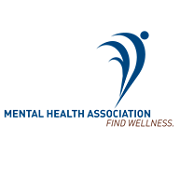Guide to Schizophrenia

Schizophrenia is a brain disorder that causes hallucinations and challenges to clear thinking and concentration. It is a serious condition when left untreated; fortunately, therapy and medications for schizophrenia are effective and safe. The Mental Health Association Of Rochester/Monroe County, in Rochester, NY, offers the following guide to schizophrenia.
What Is Schizophrenia?
The condition is a chronic brain disorder affecting approximately 1% of the population. The condition affects thinking, concentration, and motivation, and can cause hallucinations or delusions. Schizophrenia is not a split or multiple personality disorder, and contrary to popular belief, most patients are not violent or dangerous. Most people diagnosed with the condition live with their families, in group homes, or, if they are able, on their own.
What Are the Symptoms?
Age, drug and alcohol use, and other stressors can trigger symptoms. Not every person will have every indicator, and the severity and combination will vary with each active episode. Classic schizophrenia behaviors include the following.
Psychotic Behavior
Psychosis refers to an impairment that causes distortions in how one experiences reality. Examples include hearing voices, paranoid beliefs and perceptions, and hallucinations.
Depressive Symptoms
Some symptoms mimic those of depression. For example, one might feel unable to express emotions or experience pleasure. They might also experience a lack of motivation or ability to plan.
Confusion
People with untreated schizophrenia frequently exhibit disorganized and illogical thinking or speech and abnormal behavior or movement. They may also seem to be responding to stimuli that aren’t apparent to the observer.
Cognition issues
The disorder also affects the brain’s ability to focus. Patients might report a short attention span, inability to concentrate at work or school, and memory issues.
Who Is at Risk?
 Symptoms of the disease usually appear in the early teens, but can develop later in life. The disorder often manifests later for women, whose onset may arrive in their 20s and 30s. Schizophrenia rarely presents after the age of 45, and is rare but increasing in children. Scientists are not clear about the exact cause of schizophrenia. Research shows genetics may play a role, as well as environmental factors and stressful living conditions. Brain chemistry, structure, and development also play a part.
Symptoms of the disease usually appear in the early teens, but can develop later in life. The disorder often manifests later for women, whose onset may arrive in their 20s and 30s. Schizophrenia rarely presents after the age of 45, and is rare but increasing in children. Scientists are not clear about the exact cause of schizophrenia. Research shows genetics may play a role, as well as environmental factors and stressful living conditions. Brain chemistry, structure, and development also play a part.
How is Schizophrenia Treated?
There is no cure for the condition, but it can be managed with medication and behavioral therapy. Antipsychotic drugs help mitigate symptoms, while therapy focuses on retraining the brain. Patients learn to recognize warning signs of psychotic episodes and identify triggers and stressors. Vocational training can help patients hold a job and attend to tasks like laundry, cooking, and navigating public transportation. With these treatments and the support of family and community, most people diagnosed with schizophrenia have meaningful and productive lives.
If you or someone you love has schizophrenia, the Mental Health Association Of Rochester/Monroe County offers services that may help manage their illness. They provide peer, family, and employment support, life skills training, creative wellness initiatives, and more. Call (585) 325-3145 to start support services or visit their website to learn more about their programs.
About the Business
Have a question? Ask the experts!
Send your question

